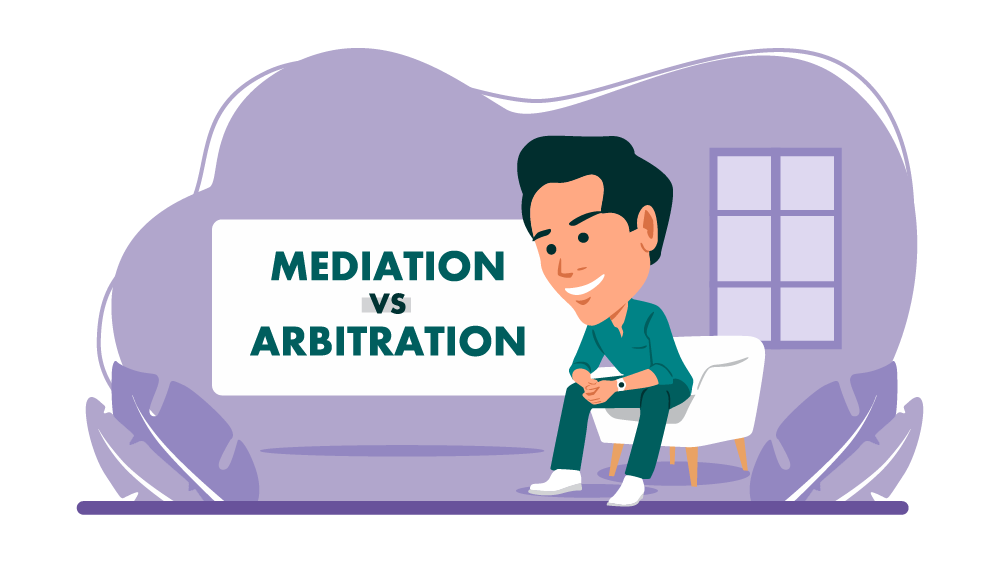Do you think lawyers and attorneys are the same things? While these are very similar types of careers, not all lawyers are attorneys.
Even though it’s very common for these terms to be used interchangeably, they are rather different things. Each comes with specific responsibilities and rights, yet they are still very similar.
Before you decide to become a lawyer or an attorney, make sure you understand the differences. Let’s compare the two, so you better understand what these two terms mean.

What is a Lawyer?
According to LegalZoom.com, “a lawyer is someone who has completed a course of legal training at a law school, which usually involves three years of full-time study beyond an undergraduate degree.”
You can be a lawyer based on your schooling and work in a different area than just law. Many lawyers work in business or government. If you don’t take or pass the bar exam, you still have the training of a lawyer.
However, without a membership to a state bar, which requires you to pass the bar exam, you cannot represent clients in court. If you decide to represent someone, you can be charged with the crime of unlawful practice of law, even though you have a law degree.
What is an Attorney?
An attorney has also completed the same educational requirements as a lawyer. However, they have also passed the state bar exam and have taken an oath, and joined the state bar.
Attorneys have the right to practice law and a license to do so. It’s possible for an attorney to become a member of more than just one state bar. This is common when an attorney decides to practice near the border of two or more states.
Lawyer vs. Attorney: The Main Differences
Before we look at the differences between lawyers and attorneys, it’s important to understand one key thing. All attorneys are lawyers, but not all lawyers are attorneys.
Attorneys can Represent Clients
The biggest difference between a lawyer and an attorney is that an attorney can represent clients in court. When it comes to legal proceedings, a lawyer cannot represent a client. However, an attorney can, and that’s a huge difference.
Use of the Education
While both lawyers and attorneys will go through the same education, the way they use that education isn’t the same. As an attorney, you will have passed the bar exam. However, you can be a lawyer and never take or pass the bar exam.
Both lawyers and attorneys will graduate from law school. They will likely earn a Juris Doctor (JD) degree. However, lawyers and attorneys may also earn a Master of Laws (LLM) degree.
Attorneys use their education to represent clients in court and with legal proceedings. Lawyers, on the other hand, often go into another field or work behind the scenes.
Research vs. Court Cases
While attorneys do a decent amount of research, too, lawyers often do far more research. Some attorneys won’t prepare court cases, but they can, and many do. However, lawyers may help with the preparation work, but won’t present any case in court.
Common Jobs for Lawyers
There are several jobs lawyers can take on including:
- Lawyer – You will provide legal advice to businesses, individuals, and government agencies as a lawyer. You might also help to interpret laws, rulings, and regulations. Many lawyers will also prepare legal documents.
- Legal Officer – Another common position for lawyers, as a legal officer, you will help to monitor the legal affairs of an organization. You will work on both external and internal affairs and concerns. Your main job duties will include providing legal advice, developing legal documents, identifying risks, and performing research.
- Legal Counsel Lawyer – You can work as a legal counsel lawyer to provide advice and guidance for a corporation or organization. You will work as an in-house legal compliance resource.
These are three of the main jobs a lawyer will take after law school.
Common Jobs for Attorneys
After passing the bar and getting your license to practice law, you can become one of the following:
- Litigation Attorney – You will represent clients in mediations, law proceedings, arbitrations, and court cases as a litigation attorney. Most of your time will be spent preparing to present your cases in court, along with reviewing past courts and preparing paperwork.
- Patent Attorney – Another common choice for attorneys is to become a patent attorney. You can help inventors get the legal rights they need by drafting patent applications. It’s also common to work with intellectual property rights as a patent attorney.
- Staff Attorney – You will work for an organization as a staff member if you become a staff attorney. The main duties you will perform include researching legal issues and laws, managing contracts, and providing training.
These three types of attorneys are very common.
Lawyers vs. Attorneys: Annual Salary
The salary for a lawyer is rather similar to the salary of an attorney. It will depend on the type of lawyer or attorney you become. For example, a litigation attorney will make around $101K per year according to Indeed.com.
If you become a lawyer, you can earn a high salary, too. As a legal counsel lawyer, you’ll likely earn a salary close to $125K per year, according to Zippa.com.
Both lawyers and attorneys can make a very nice living. While not all salaries will be over $100K for this type of career, it’s very possible to earn far more than $100K as a lawyer or an attorney. It will depend on the type of law you go into and your employer.
While lawyers and attorneys both go to law school and earn an advanced degree, they are different. If you want to become a lawyer, you won’t represent clients. Instead, you will provide legal advice and likely do quite a bit of research.
However, if you want to represent clients and prepare court cases, you want to become an attorney. This means you will need to pass the bar exam and join your state’s bar association.




